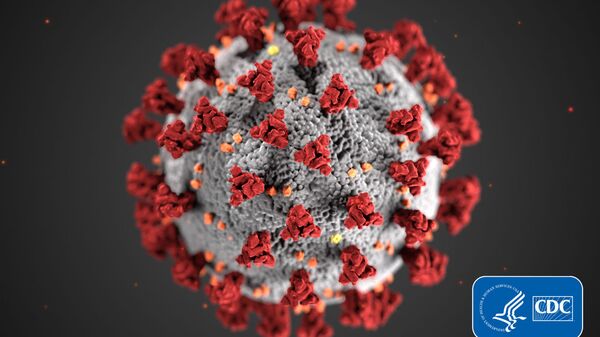Hospital data that was reported to the CDC’s National Healthcare Safety Network (NHSN) was removed from the agency’s website, CDC spokesperson Kristen Nordlund confirmed earlier Thursday. However, that was not the case for long.
HHS spokesperson Michael Caputo told CNBC hours later that the HHS “directed CDC to re-establish the coronavirus dashboards it withdrew from the public on Wednesday” because the HHS is “committed to being transparent with the American public about the information it is collecting on the coronavirus.”
Caputo also noted that the HHS department will be able to provide “more powerful insights” than the CDC.
Currently, the CDC’s web page on available hospital and ICU beds includes some data updated through July 14, but also includes a note that reads: “Data displayed on this page was submitted directly to CDC’s National Healthcare Safety Network (NHSN) and does not include data submitted to other entities contracted by or within the federal government.”
Since the US novel coronavirus outbreak began in March, the CDC has published data on hospital bed availability as well as information on intensive care units (ICUs) across the country - information that was no longer available for some time on Thursday.
On Wednesday, CDC Director Robert Redfield told reporters that states had been directed to no longer send such information to the NHSN system, and that states were instead to send all data to the HHS’ reporting portal.
“It is not unusual for CDC guidelines to be changed or amended during a clearance process that moves through multiple agencies and the White House. But it is extraordinary for guidelines to be undermined after their release,” several former CDC directors wrote in a Tuesday op-ed published in the Washington Post.
“Through last week, and into Monday, the administration continued to cast public doubt on the agency’s recommendations and role in informing and guiding the nation’s pandemic response,” they added.
In interviews with CNBC, health care experts admitted that the CDC’s data reporting structure was in need of updating but also expressed concern that the Trump administration could potentially distort the data that is sent to the HHS.
“What worries me is that we seem to be pushing rather suddenly in the midst of what feels like a very urgent time in terms of surging cases that we’re seeing across the country,” Dr. Jennifer Nuzzo, an epidemiologist at Johns Hopkins University, told CNBC.
“The question is, what are we going to lose in this transition, and in particular at a moment where we really don’t want to lose any ability to understand what’s happening in hospitals.”
Dr. Jen Kates, senior vice president and director of global health and HIV policy at the Kaiser Family Foundation, expressed similar concerns.
“It’s been such a critical source of information for everyone, for states, for researchers, for reporters, for the public to try to understand what’s happening. The last thing you want is for data to be politicized. It just raises that concern. Will data being at HHS create a more politicized use of it, or maybe not. But again, it’s a concern that’s been raised,” she told CNBC.




